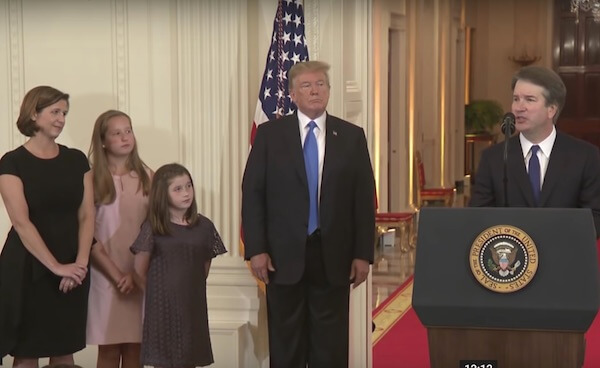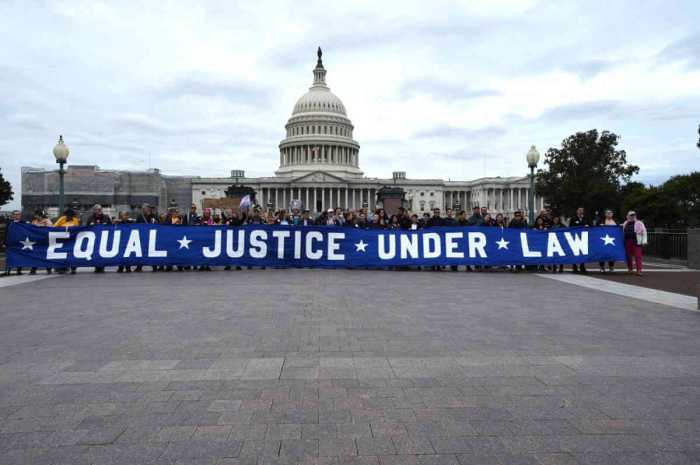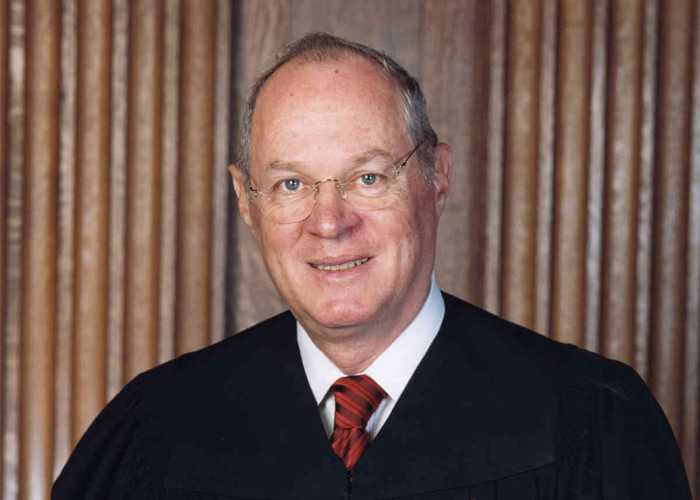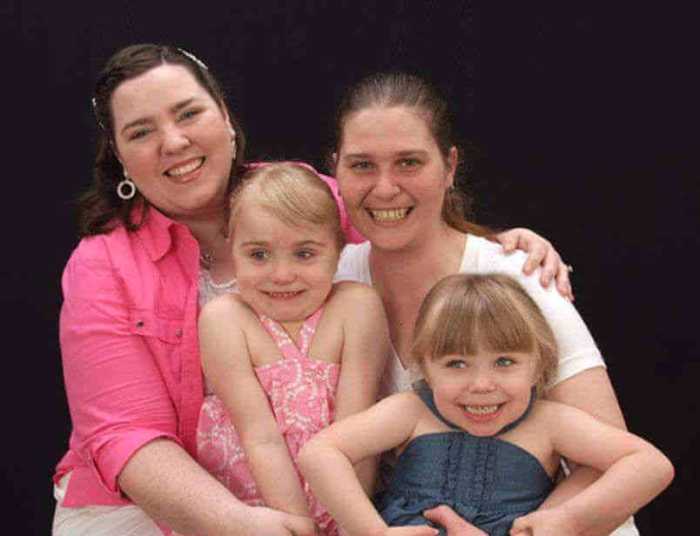Judge Brett Kavanaugh at the White House on July 9, flanked by his wife Ashley, their two daughters, and President Donald Trump. | WH.GOV
While Donald Trump nominated a conservative to fill the seat on the US Supreme Court left vacant by Justice Anthony Kennedy’s announcement just 13 days ago that he would retire, he selected a federal appeals court judge who is less of a firebrand and more of a longtime functionary in official Washington.
“Throughout legal circles, he is considered a judge’s judge,” Trump said during the July 9 primetime broadcast announcing he was nominating Brett Kavanaugh to replace Kennedy. “There is no one in America more qualified for this position and more deserving.”
The 53-year-old Kavanaugh has served on the US Circuit Court of Appeals for the District of Columbia since 2006 and previously served in the White House during George W. Bush’s presidency. Bush first nominated Kavanaugh for a federal judgeship in 2003, but Kavanaugh’s service under Ken Starr, the independent counsel who aggressively advocated for President Bill Clinton’s impeachment for lying about an affair he had with a White House intern, stalled his nomination and it was eventually withdrawn. He was nominated again in 2005 and approved in a 57 to 36 vote. Kavanaugh took a poke at his critics at his 2006 swearing-in that was held in the White House Rose Garden.
Trump takes care of his base, court balance shifts more conservative
“I’ve benefited as a lawyer and as a person from my work for Judge Starr, who has always combined devotion to the rule of law with great personal decency,” the Washington Post quoted him saying during the ceremony.
Starr’s status as an upright prosecutor was ended during his tenure as chancellor at Baylor University when it was revealed he had ignored rape allegations and convictions and assault charges brought against several university football players. Starr was forced to end his relationship with Baylor in 2016.
In his 2010 book, “The Death of American Virtue: Clinton vs. Starr,” author Ken Gormley describes Kavanaugh as one of the prosecutors in Starr’s office who most wanted to publicly humiliate Clinton with sexually explicit questions about his relationship with Monica Lewinsky, the intern. Gormley wrote that Kavanaugh “pushed hardest to confront Clinton with some of the dirtiest facts linked to his sexual indiscretions with Lewinsky.”
A 1998 article in the Washingtonian magazine on up and coming DC lawyers has Kavanaugh, who earned his undergraduate and law degrees at Yale, first working for Starr when Starr was the US solicitor general under President George H.W. Bush. Kavanaugh then clerked for Kennedy and was going to follow Starr to Kirkland & Ellis, a law firm, but instead took the job in the independent counsel’s office under Starr.
Kavanaugh joined the Bush administration in its first year and served under Alberto Gonzalez, the White House counsel, where he was tasked with identifying suitable nominees for the US Supreme Court.
“At the beginning of the Bush administration in 2001, I tasked Brett Kavanaugh, one of the Associate Counsels in the White House Counsel’s Office, to coordinate the initial formal vetting of potential Supreme Court nominees,” Gonzales wrote in a 2014 article in the William & Mary Bill of Rights Journal.
While working in the Bush White House, Kavanaugh was one of three staffers who met with some 200 gay Republicans in 2003 in advance of the 2004 presidential election.
“If we were completely satisfied that the Republican Party was as inclusive as we wished, we would cease to exist,” Patrick Guerriero, then the head of the Log Cabin Republicans, told the Associated Press in 2003. “It’s obvious that the issue of inclusiveness in the Republican Party is going to be a major issue.”
Bush eventually endorsed an amendment to the US Constitution that would ban same-sex marriage and the Log Cabin Republicans declined to endorse him in 2004.
The Washingtonian reported that Kavanaugh, who was born in the nation’s capital and raised in nearby Bethesda, Maryland, is the son of a Maryland state judge and a cosmetics industry lobbyist. Kavanaugh is a Roman Catholic and attended Catholic schools before college. He lives in Maryland with his wife, Ashley, and their two daughters. The couple met while working in the Bush White House.
LGBTQ and other progressive groups were already concerned about the four people who were on Trump’s short list to replace Kennedy, seeing Roe v. Wade, the 1973 US Supreme Court ruling that struck down laws banning abortion, and the 2015 ruling from that court that required states to issue marriage licenses to same-sex couples as at risk of being reversed.
Kennedy was the swing vote on four important wins for the LGBTQ community at the US Supreme Court. Though a Republican, he was seen as a moderating influence on the far right judges on the court. With Kavanaugh, Trump may have shifted the balance on the court to empower a consistently conservative voting bloc.
“Brett Kavanaugh may bring the requisite experience, but given Donald Trump’s promise to overturn Roe v. Wade, the decision that recognized the right to an abortion, and efforts to reverse progress on civil rights and civil liberties, that’s not enough,” David Cole, the legal director at the American Civil Liberties Union (ACLU), said in a written statement. “It’s incumbent on Congress to determine whether Kavanaugh’s legal views are compatible with the powerful role he will play for generations.”
The ACLU does not endorse or support presidential nominees.
The National LGBTQ Task Force called Kavanaugh’s nomination an “executive power grab” in a written statement.
“There hasn’t been a nominee for the Supreme Court this extreme since Robert Bork,” Rea Carey, the executive director of the Task Force, said in the statement, referring to a Ronald Reagan nominee forced to withdraw and eventually replaced by Justice Kennedy. “Kavanaugh is a clear choice for Trump to expand his own power and escape the Mueller investigation.”
The Human Rights Campaign, the nation’s largest LGBTQ lobby, is calling on the US Senate to reject Kavanaugh.
“Donald Trump’s nomination of Brett Kavanaugh is irresponsible and dangerous. He will undermine LGBTQ equality, women’s reproductive rights, and affordable healthcare,” said Sarah Warbelow, the group’s legal director, in a written statement. “This is not the fair-minded constitutionalist worthy of replacing Justice Kennedy. The US Senate needs to exercise its constitutional responsibility and reject this nominee.”





































